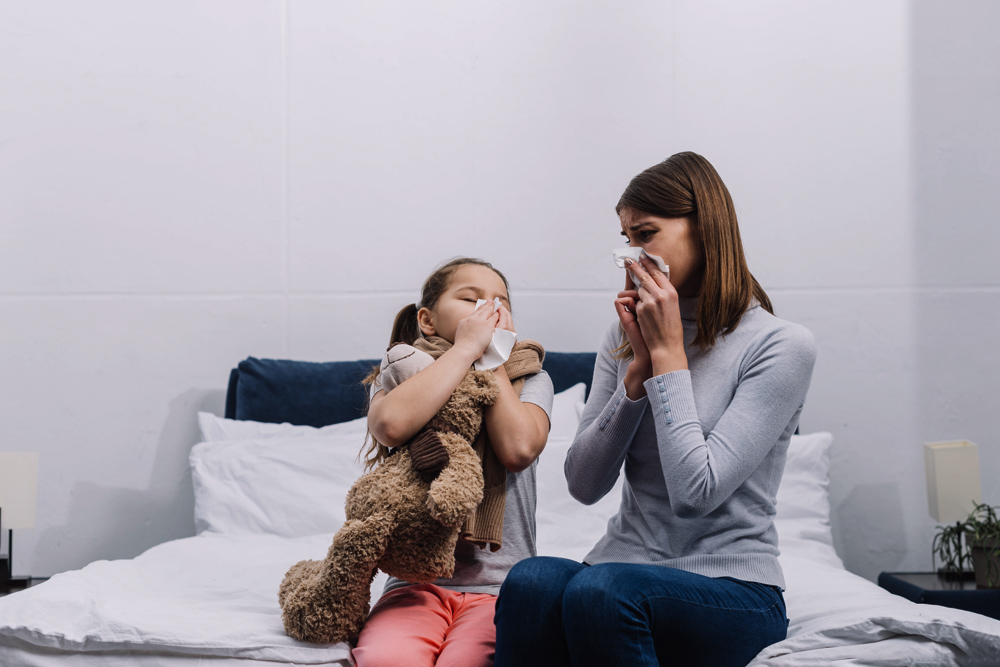
When it comes to illnesses, it’s the children that are highly at risk. A child’s immune system only develops fully when they reach 7-8 years of age, meaning that kids are more prone to experiencing certain conditions compared to adults. During this vulnerable stage, it’s important that you understand the different childhood illnesses your kids might be at risk of to help provide them with the protection they need.
If your child exhibits any of the problems listed below, seek medical attention right away.

- Excessive drowsiness and unresponsiveness
It’s normal for a child to feel drowsy, especially after eating or feeding. But if your child feels drowsier than usual, then it may be a sign of an underlying health condition. Being unresponsive is also a serious issue (i.e. when you find it difficult to wake your child up) which is mostly attributed to low blood sugar. In severe cases, unresponsiveness can be a sign of meningitis, a life-threatening brain infection.
- Constant, high-pitched crying
All infants and young children cry. But if they emit a constant, high-pitched cry, is something to be concerned about. This can be a symptom of kernicterus, a serious form of brain damage that’s caused by high levels of bilirubin in a baby’s blood.
- Breathing problems
Breathing issues are common in children with weak lungs. They may experience persistent cough, difficulty breathing, and inability to make sounds or have conversations. In severe cases, your child might appear bluish and tired. If so, these symptoms may be caused by pneumonia or severe asthma.
- Pale, blotchy skin
Having pale, blotchy skin is often a sign of poor blood circulation or low oxygen levels in a child’s body. This condition is called cyanosis and it can be easily seen in the child’s earlobes, mouth, lips, and fingernails.
- Seizures/convulsions
Children between the ages of 6 months and 6 years old are prone to experiencing febrile convulsions. Febrile convulsions occur when a child’s fever rises to above 38°C. Such high body temperature leads to abnormal electrical discharges in the brain, thus causing the seizure.
Thankfully, febrile convulsions do not cause brain damage or long-term issues and most children recover completely from it. Do make sure to consult a GP if it’s your child’s first time to experience febrile convulsion.
- Rashes
Meningococcal disease is a type of infection that causes serious illness like meningococcal septicemia (blood infection) and meningitis. You’ll know your child has this when you press a glass firmly against your child’s skin and the marks don’t fade away.
- High fever
Having a fever is the body’s way of fighting off infections. In most cases, children with fever usually don’t have a serious illness. But if their fever reaches 39°, it might be a sign of a serious infection. Babies who develop fever under 3 months need to see a pediatrician as soon as possible. It’s hard to tell whether newborns have any serious underlying illnesses so it’s a good idea to visit your baby’s pediatrician immediately.
- Infrequent urination
Infrequent urination (known medically as oliguria) is when your baby experiences less wet nappies than usual. The most common cause of oliguria is dehydration. Sometimes, the urinary tract is blocked by kidney stones or a tumor. Do keep in mind that a healthy baby may not urinate for 24 hours after birth. But after that, they should be urinating at least 0.5 mL/kg per hour a day.
- Loss of appetite
Loss of appetite (anorexia) is common in many children. If your child is uninterested in eating and they’re slowly losing weight, it may be a sign of a chronic illness that can either be psychogenic or organic like emotional stress or constipation/belly pain. Because of this, the child’s body may not receive the nutrients they need in order to stay healthy. If not addressed, anorexia can cause heart damage, digestive tract issues, brittle bones, and dehydration.
- Frequent vomiting
Vomiting is the body’s way of discharging anything it doesn’t want. It can also be an indication of an infection or illness. The most common cause of vomiting in both infants and children is gastroenteritis. Gastroenteritis is a gut infection caused by a bacteria, virus, or parasite. If your child is vomiting frequently, it’s best to see a physician right away.
Persistent vomiting in newborns between 2 weeks and four months of age can be attributed to hypertrophic pyloric stenosis, which is the thickening of the muscle at the stomach exit. This requires the immediate attention of a pediatric surgeon to open up the narrowed area and allow food to pass through the intestines.
Children have fragile bodies. With their underdeveloped immune systems, it’s easy for them to acquire certain illnesses. Understanding these 10 childhood illnesses will enable you to act swiftly and get your child the help they need and prevent further complications from worsening over time. Should you ever feel like you need more information, then please get in touch with a leading paediatric surgeon in Newcastle who can educate you on all child-related issues.
